How do Valve's new Steam Machines compare to each other?
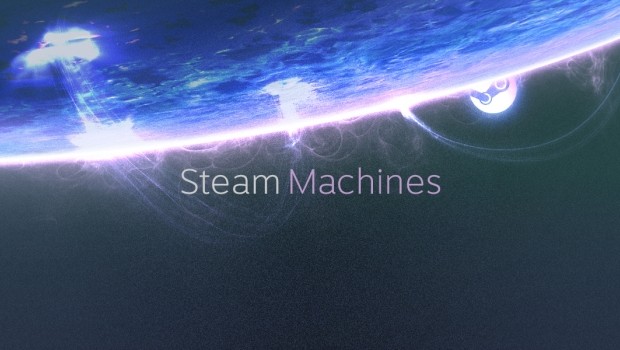
In with the new!
Valve made waves at CES this year when it finally revealed the hardware that will underpin its SteamOS initiative. In a press event at the show, Valve introduced a baker's dozen of shiny new boxes from the likes of Alienware, Origin PC, Digital Storm, and more. Better yet, we got to learn what was inside the machines, as many of the manufacturers came to CES ready to give details
As exciting as it is, this reveal comes with some questions. What differentiates the various Steam Machines from one another? What components are available for each machine? How much will they cost? Are they worth the price? Luckily, we have your answers!
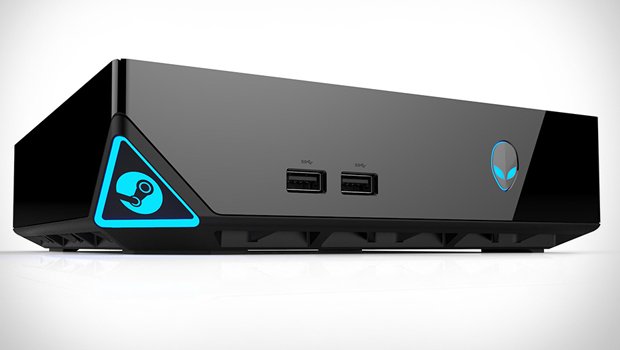
Alienware
If we were giving out awards for the prettiest case, Alienware's entry would definitely be a contender. The glossy, monolithic black exterior is marred only by a pair of USB ports and a set of lighted logos. Unfortunately, the box is all we have to judge this one by, since Alienware only brought a mockup to CES--no working hardware, no price, and no hints about what might be inside.
We can make a few guesses, though. Alienware has a reputation for building powerful machines in sleek, eye-catching cases, but that reputation comes at a premium--you pay extra for the brand name and the pretty boxes. All indications suggest that the Alienware Steam Machine will be based on Alienware's existing x51 lineup of home-entertainment PCs, which is a good--but not great--machine in its own right
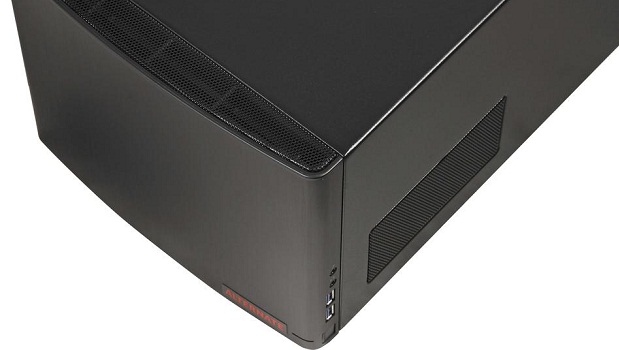
Alternate
Definitely a step down from Alienware's beautiful effort, Alternate's push into the living room is big, square, and ugly. While not much has been written about it, we do know the base components: an Intel Core i5 4570, NVIDIA GTX 760 GPU, 16 gigs of RAM, and a whole terabyte of storage courtesy of a hybrid solid state drive.
This German box is definitely more powerful than an Xbox One and a PlayStation 4, but it doesn't have much else to make it worth recommending. Though it costs around $1340 dollars, the components themselves add up to a hair less than $1000. With its massive, boxy design and the stiff markup on its components, I'm not really sure who this is meant to appeal to.
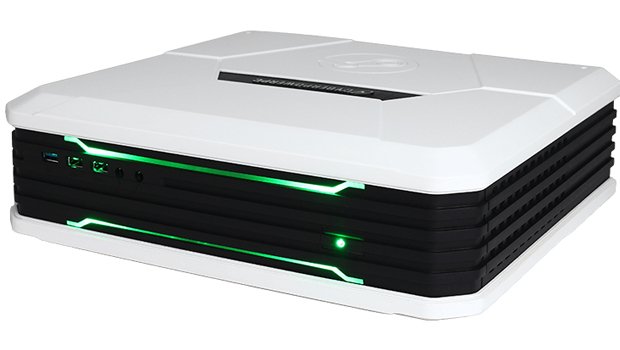
CyberPowerPC
CyberPowerPC is clearly going after the existing console market with its budget-friendly lineup. The "Steam Machine A" is stuffed with a 3.8 GHz AMD CPU, a 2GB Radeon R9 270 graphics card, 8GB of RAM, and a 500 gigs hard drive, this retro-looking box is just about on par with the specs of your Xbox One and PS4. At $499, it's also right in the same price range.
Gamers looking to turn up the PhysX might want to consider CyberPowerPC's other model: "Steam Machine I." Based around Intel and NVIDIA internals, the Steam Machine I gives the buyer the option to spend a bit extra for a performance boost. Regardless of which model you chose, CyberPowerPC's Steam Machine is a pretty good value--the cost of the box is essentially the cost of parts alone, without the markup you'll see on bigger names.
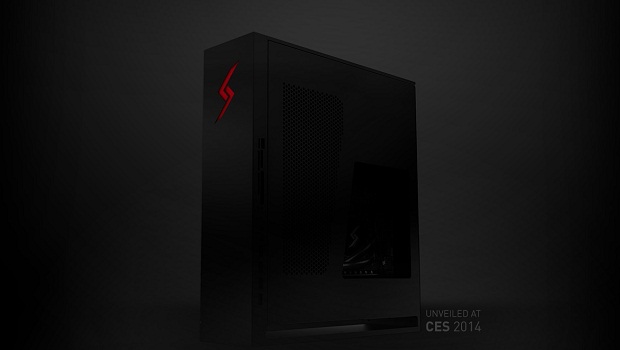
Digital Storm "Bolt II"
Digital Storm's "Bolt II" is a SteamOS version of the existing (or rather, soon-to-exist) "Bolt II" design. Essentially a standard PC tower, the Bolt II certainly won't make any compromises to fit into your entertainment center. Still, there's some serious horsepower in this inelegant box: an Intel Core i7 4770K processor, a GTX 780 Ti GPU, 16 gigs of ram, and a pair of storage drives--128GB on an ultra-fast SSD, and an additional terabyte on a familiar spinning disk.
What's interesting is that the Bolt II will come with Windows 8.1 installed, ready for dual-booting. I think this indicates what the Bolt II really is: a standard, though powerful, gaming PC which just happens to have Valve's custom OS and controller shipped with it. It's an odd proposition, and when you take the price into consideration--between $1800 and $2500--it's hard to see this revolutionizing the PC world.
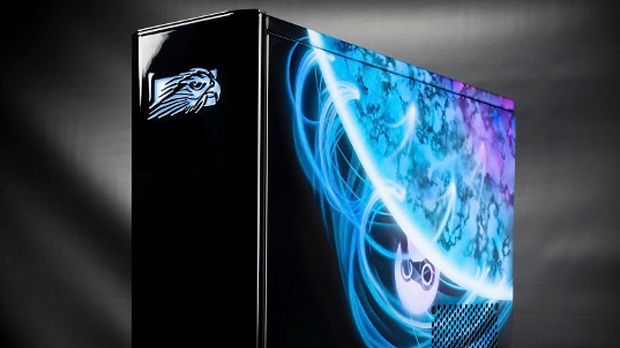
Falcon Northwest "Tiki"
Hoo boy. Stuffed to the gills with ultra-powerful hardware, the Tiki is a force to be reckoned with. Built on the Falcon Northwest's existing "Tiki" chassis, this Steam Machine features a Titan GPU, 16GB of ram, and up to six terabytes of storage. The Tiki chassis is essentially the Ferrari of gaming PCs: lightweight, cramped, and ferociously powerful.
Requisite drooling out of the way, this machine is simply insane. Like the Ferrari, the Tiki isn't designed for the likes of me or you. No, this is designed for rock stars and corporate big shots with six grand to drop on their PC gaming. Don't expect to see a Tiki at your local Best Buy--this isn't so much a gaming device as a status symbol.
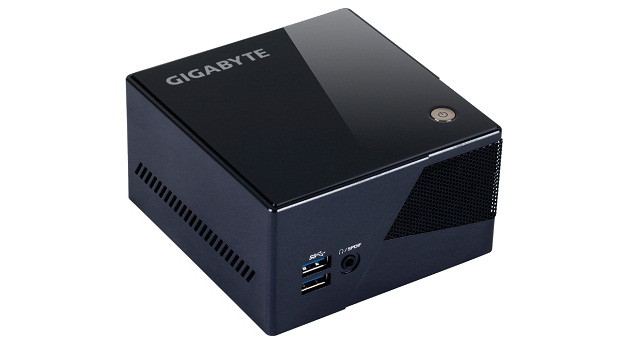
Gigabyte "Brix Pro"
Gigabyte's "Brix Pro" is actually one of the more interesting offerings in the Steam Machine lineup. To get the obvious out of the way first, the Brix Pro is absolutely tiny. You'll get an Intel Core i7 4770R, 8 gigs of RAM, and a full terabyte of storage packed into a box hardly bigger than a stack of CDs.That size comes with a tradeoff, though: The Brix Pro has no dedicated GPU, relying on Intel's Iris Pro 5200 integrated chipset to compute the visuals.
Integrated chips have come a long way over the past few years, but I'd be surprised if this little brick could handle a game like Metro: Last Light or Crysis. That said, it should be able to handle indie games without too much trouble. The big question that remains is the price--if the cost is low enough, the Brix Pro might find a spot as a dedicated set-top box, allowing you to easily stream games from your PC to your television.
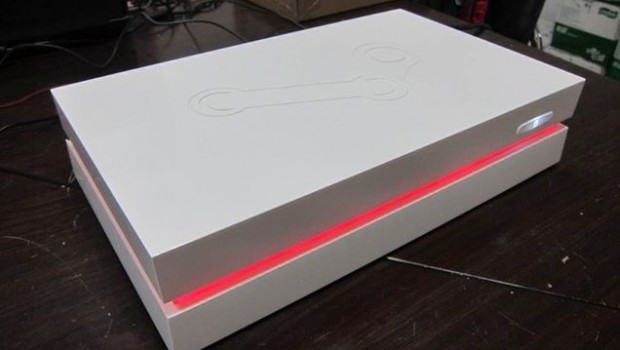
iBuyPower "SBX"
Much like CyberPowerPC's Steam Machine A, the SBX is clearly aimed at the console market. The box's design is quite elegant--a strip of colored light running between two sleek rectangles, with nary a disc drive to break its smooth face. The shape and size of the case are about equal to any other box in your entertainment center, so you'll have no trouble adding the SBX to the stack.
As beautiful as the box is, the specs suggest that it's seriously lacking in oomph. Reportedly carrying an Athlon X4 740 CPU, a Radeon R7 260x GPU, and a mere 4GB of RAM, the SBX certainly isn't going to knock anybody out of their chair. However, the SBX is also one of the cheapest of the bunch, coming in at less than $500 bucks. What's even more intriguing is that, in an interview with Joystiq, iBuyPower suggests it would sell SBX models with the option to include an Oculus Rift.
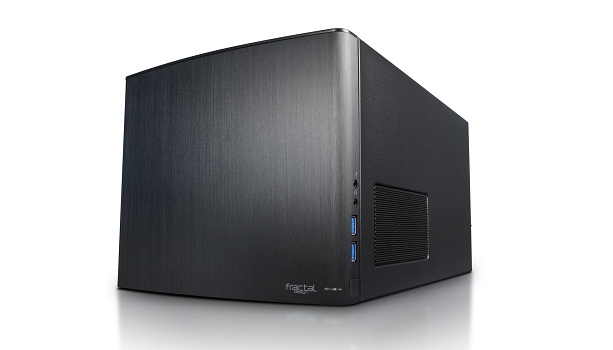
Materiel.net
Materiel.net's unnamed Steam Machine is another big, ugly box with some decent internals. Inside this monolith, you'll find an Intel Core i5 CPU, an NVIDIA GTX 760, 8GB of RAM, and a 1TB hard drive. That's a substantial step up from the current Xbox and PS4, making this machine a solid mid-range gaming PC.
The Materiel.net Steam Machine is eerily similar to Alternate's Steam Machine, both in its specs and its monolithic design. Unfortunately, it comes with the same problems as its cousin: Materiel.net is getting a hefty premium on the hardware. By my estimation, building an equivalent PC on your own would run you about $950 bucks, while Materiel.net's box will cost right around $1100.
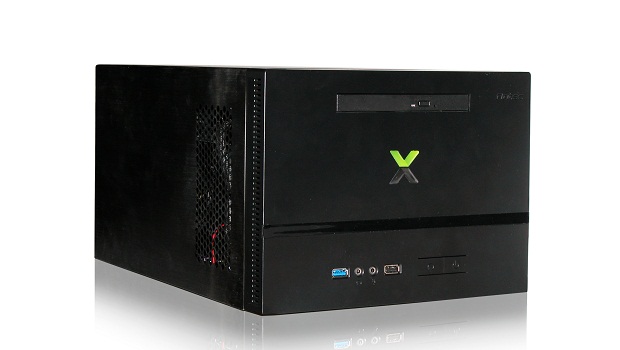
Next "Spa"
Next's entry into the living room seems to be cut from the same mold as Materiel.net's and Alternate's offerings. Yet another large, hideous box, yet another Intel Core i5, and yet another GTX 760 graphics card. The Spa also comes with 8 gigs of ram and a 1 terabyte drive, which is good, but not spectacular. No word on the price, but based on similar machines from Alternate and Materiel.net, I'd expect a price somewhere between $1000 and $1200.
Like its cousins, the Spa is a solid PC gaming system, but it seems difficult to justify choosing this Steam Machine over simply building a standard Windows tower. The tall, boxy design certainly isn't going to squeeze onto the shelf of your entertainment system. Not that you'd want it there--the box showed at CES is absolutely hideous. You'd be better off building one yourself; it'd be slightly cheaper, and you can definitely find a better case.
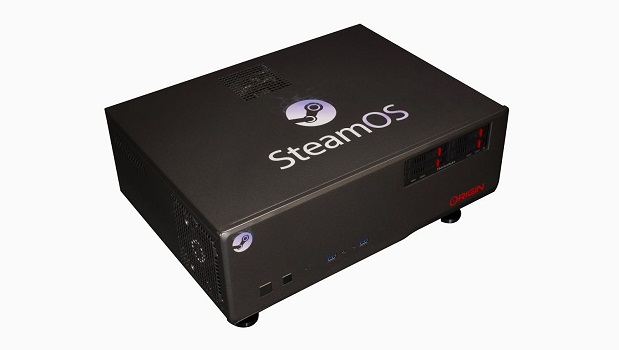
Origin PC "Chronos"
Origin PC is another big-name, boutique PC manufacturer making a play for living room dominance. And good lord, are they ever going hard. The Chronos will be highly customizable, with two known models already in the works. That said, a fully loaded Chronos will give you an Intel Core i7 processor, 32GB of ram, and up to 14 terabytes of storage (in either HDD or SSD formats). What's that? You wanted to know about the GPU? How about a pair of GTX Titans.
Once you've picked your mouth up off the floor, you'll quickly realize that the Chronos, much like Falcon Northwest's Tiki, is a luxury box for people with more money than they know what to do with. There's no word from Origin PC about price just yet, but you'll want to start saving your pennies now--you could likely buy a few used cars for less than the potential price of this thing.
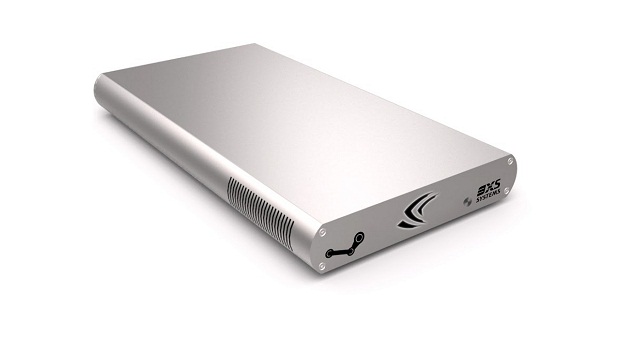
Scan "NC10"
Designed to feel right at home on the shelf below your TV, Scan's NC10 is a beautiful little machine. Containing an Intel Core i3 4000M processor and a GTX 765M GPU, the NC10 seems to get its ultra-thin form factor by relying on components designed for use in laptops. You'll also get 8GB of RAM and 500GB of storage.
The NC10 is an odd little thing. The outside is sleek and beautiful, but the internals are seriously lacking in power, especially considering the hefty $1100 price tag. It's unclear how well the NC10 could handle serious gaming sessions, especially considering the seeming lack of ventilation. I could definitely see the NC10 as a dedicated box for streaming games to your television, though at a stiff price.
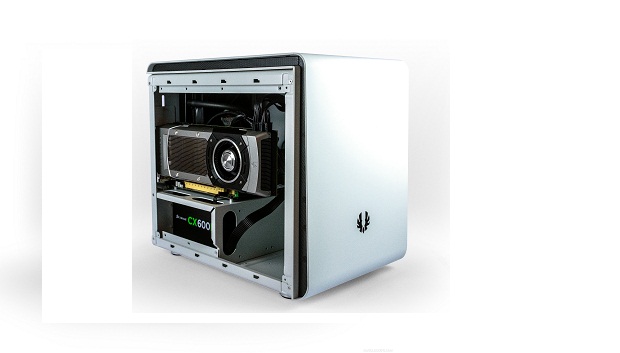
Webhallen
Hailing from Scandinavia, and white as the snow you'll find there, WebHallen's Steam Machine certainly has some giddyup to it: an Intel Core i7, 16GB of RAM, an NVIDIA GTX 780 graphics card, and a full terabyte of storage on a SSD / HDD hybrid drive. That's a very good gaming PC, basically doubling the power you'll find in a modern console.
This elegant Swedish box seems to hit all the right notes for the high-performance Steam Machine. At $1500 bucks it's definitely expensive, but there's very little markup on the cost of the parts ($1450 or so, by my calculations). Add in the gorgeous, understated design of the case, and you've got a real front-runner if you're looking for a Steam Machine that's got serious horsepower without breaking the bank.
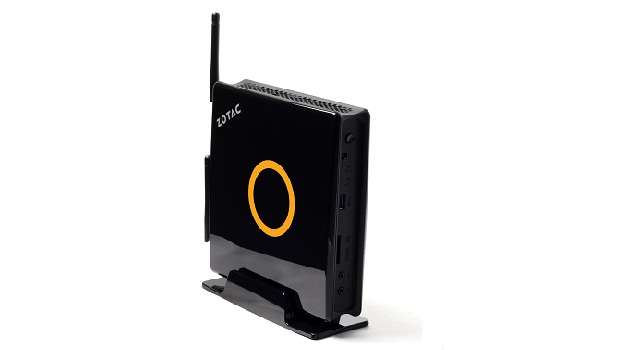
Zotac
Our final contestant might be the strangest yet. I mean, just look at it. It's a dead ringer for your average wireless router--it's even got the little antennae and everything. Unfortunately, we really don't know much else about this oddity. Zotac hasn't given out specifics on what's inside, saying nothing more than its inclusion of an "enthusiast-class" processor and an "upcoming performance-class" GTX graphics card. The only other info we have is the price: $599.
Given the miniscule case, it's hard to believe there's anything incredible under the hood. Apropos of nothing, I'd speculate that it's using notebook hardware to squeeze everything together, which means that you'll be spending more money for less power. Still, Zotac seems to be shooting for Xbox One / PS4 performance levels, and given its teensy footprint, the price seems about right.

A New Era?
There you have it: everything we know about the first round of Steam Machines. As cool as they are, there are still a few questions that need to be answered, especially regarding the potential audience. I mean, who are these things for, anyways?
If you've had your fill of all things Valve, it might be time to move past CES and start looking ahead at all the amazing games coming out this year. 2014 is looking pretty huge; you don't want to miss a great game because you didn't know it was coming out!


